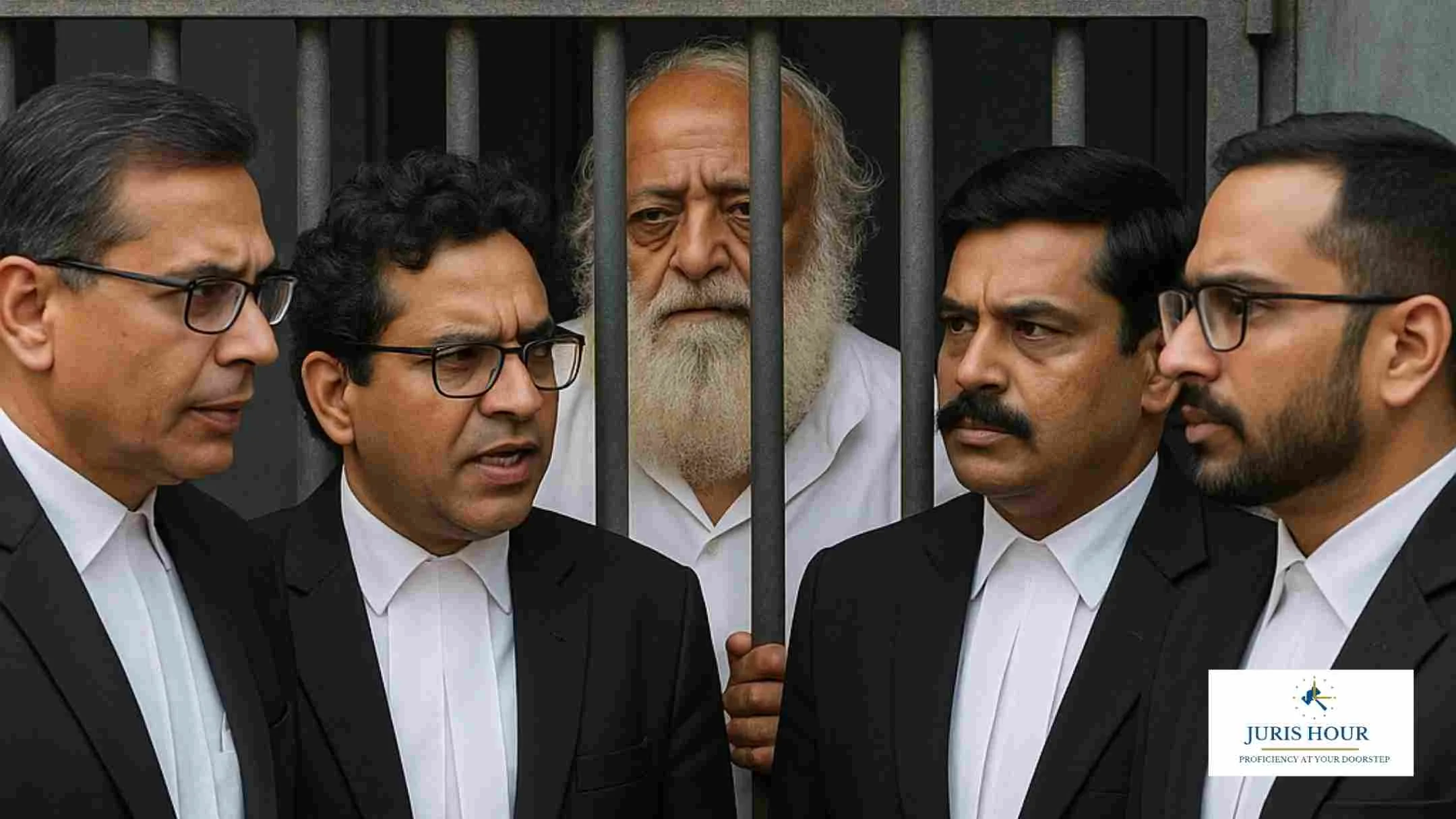The legal saga of Asaram Bapu — the self-styled godman convicted of raping a minor — is one of the most high-profile and controversial criminal trials in India’s recent history. But while much has been written about the case itself, the spotlight rarely shines on the lawyers who defended him. Representing a figure as polarizing as Asaram comes with unusual legal, ethical, and even physical risks.
From courtroom drama and political interference to shocking betrayals and even physical assaults — the legal team that fought for Asaram has seen it all. Here are ten little-known, and often shocking, facts about the lawyers who represented him across courts in India.
1. Ultra-High-Profile Defence Representation
Asaram Bapu’s legal bench included some of the most well-known names in Indian legal history — Ram Jethmalani, Salman Khurshid, Subramanian Swamy, K.T.S. Tulsi, and Raju Ramachandran, among others. Few criminal trials in India have seen such an assembly of high-profile senior counsel, many of whom had earlier defended politicians, celebrities, or corporate magnates.
2. Lavish Legal Fees and Court-Imposed Fines
Ram Jethmalani, known for his premium fees, reportedly charged ₹20–25 lakh per appearance. Yet the defence team’s tactics backfired at times — the Supreme Court fined Asaram ₹1 lakh for submitting false medical documents during a bail hearing. The apex court also ordered an FIR against him for misleading the court, a rare instance of the judiciary acting directly against a high-profile accused.
3. Jethmalani’s Controversial Defence Strategy
In a widely criticized argument, Jethmalani claimed the prosecutrix was not a minor and argued that no penetrative act had taken place. These arguments, although legally framed, were met with strong opposition and were ultimately overridden by the court, especially in light of the strict provisions of the Protection of Children from Sexual Offences (POCSO) Act.
4. Subramanian Swamy’s Surprise Bail Plea
In a move that surprised even court observers, Subramanian Swamy, a BJP MP and advocate, filed a bail applicationfor Asaram in the Rajasthan High Court in 2015. The application cited procedural irregularities and prolonged pre-trial detention. It was swiftly dismissed. The attempt was viewed as controversial given the political climate and the seriousness of the charges.
5. Salman Khurshid’s Medical Bail Push
Senior advocate and Congress leader Salman Khurshid argued a Supreme Court bail plea in 2014, citing Asaram’s deteriorating health. The defence attached voluminous medical records, yet the court denied relief. Khurshid’s involvement stirred political debate, as his appearance came amidst heavy media scrutiny and rising outrage over delays in justice.
6. Saurabh Ajay Gupta: The Emerging Legal Name
Saurabh Ajay Gupta, a younger but rising criminal lawyer and a former associate of Jethmalani, also took part in Asaram’s legal defence. Known for his precision in paperwork and procedural tactics, Gupta’s involvement reflected the expanding defence team’s efforts to combine experience with aggressive litigation strategies.
7. The 30-Lawyer Defence Army
At the peak of the trial, Asaram’s legal team reportedly included between 14 to 30 lawyers, many of whom travelled in expensive vehicles and were backed by a well-funded legal apparatus. In stark contrast, government prosecutor P.C. Solanki often commuted on a scooter and refused to take fees — a juxtaposition that drew national attention.
8. Asaram’s Own Lawyer Attacked by Devotees
In a shocking turn, on 18 January 2024, Asaram Bapu’s lawyer Vijay Sahni was assaulted by two of Asaram’s own devotees inside the Rajasthan High Court premises. The devotees, upset over the alleged delay in securing medical bail, verbally abused Sahni and physically attacked him and his assistant after a court hearing. Both assailants — Kapil Bhola (Kota) and Vishal Khanna (Delhi) — were arrested on the spot. The incident raised serious concerns about the security of advocates and the volatile nature of such high-profile criminal cases.
9. The Lone Warrior Prosecutor: P.C. Solanki
On the other side stood P.C. Solanki, the government-appointed special public prosecutor. He led the prosecution almost single-handedly for five years, without accepting a single rupee in fees. Solanki faced repeated death threats, bribe offers, and intimidation — but continued relentlessly, even as the defence expanded into a legal army. His role later became the basis for the film Sirf Ek Bandaa Kaafi Hai.
10. The Trial That Entered Pop Culture
The courtroom battle over Asaram’s conviction inspired not only national debate but also films and documentaries. Sirf Ek Bandaa Kaafi Hai, starring Manoj Bajpayee, was loosely based on the trial. Solanki later issued a legal notice to the producers for using his likeness without permission. Meanwhile, Asaram’s lawyers continued to pursue multiple rounds of bail applications and appeals, including on health grounds, well into 2025.
Conclusion
The lawyers who represented Asaram Bapu faced a storm of legal, moral, and physical challenges — some of which were unprecedented in Indian courtrooms. From being assaulted by their client’s own supporters to arguing before the Supreme Court under public pressure, their journey reveals the volatile mix of faith, power, and law that defines India’s most controversial criminal trials. It is a vivid reminder that in high-stakes litigation, even defenders don’t always walk away unscathed.

